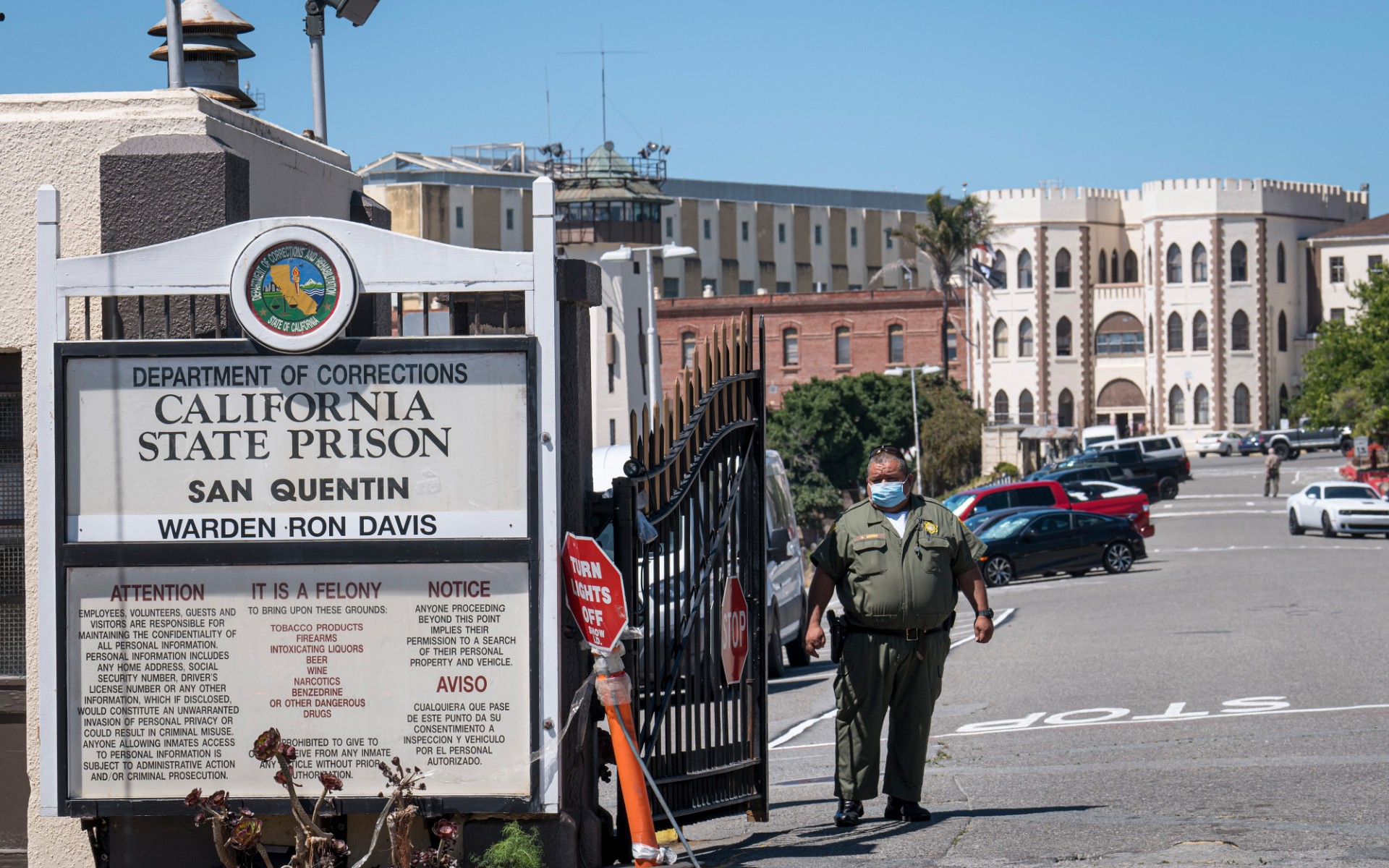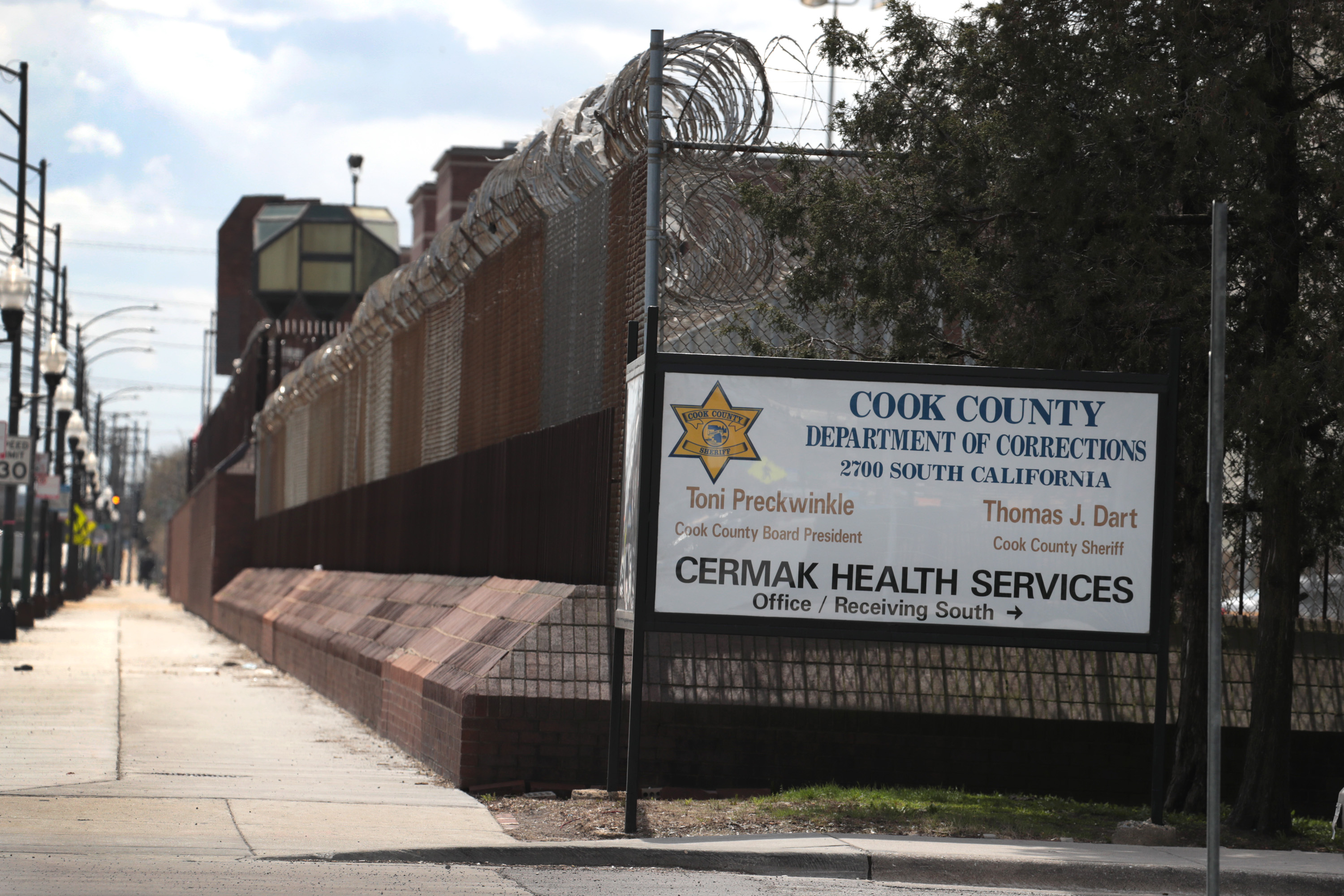Five DAs have raised the alarm that releasing inmates to prevent the spread of COVID-19 could mean releasing dangerous people back into society.
Family members of incarcerated New Yorkers and corrections officers are calling on the state’s lawmakers and governor to ensure prisons and jails won’t again face a staffing shortage, barriers to social distancing and dangerous rationing of protective gear ahead of the next COVID-19 surge or pandemic.
Testing of people with symptoms at the state’s prisons and New York City jails revealed thousands of COVID-19 infections among incarcerated individuals and guards, who called on the state and New York City to act at a Tuesday legislative hearing.
Inmates struggled to socially distance, wash their hands, access hand sanitizer and get their hands on masks and other face coverings in the early days of the pandemic, according to Jermaine Barrett, who said he was released July 28 from a maximum security prison north of New York City.
“Initially when everything was shut down, more or less we were left to our own devices,” Barrett said.

And guards were forced to work overtime amid severe staffing shortages, while their union in New York City sued the city to provide masks, testing and more sanitization at jails.
“I have not, as of today, seen a written action plan from the DOC to ensure that the litany of mistakes made the first time around, never happens again,” Benny Boscio, president of the union representing city correction officers, said referring to the city’s corrections department.
Other unions and reform groups urged New York to require regular COVID-19 testing, improve ventilation systems, increase funding and hiring for correctional health care services and ensure all guards and inmates wear masks.
In March and April, corrections officials scrambled to contain a virus known to spread quickly in enclosed, crowded spaces. In New York City alone, over 1,400 corrections staffers and 570 incarcerated individuals at jails have tested positive for COVID-19, according to city data.
That’s on top of over 1,300 staffers and 773 inmates at state prisons, according to the state Department of Corrections. And roughly 400 corrections workers and 200 inmates tested positive for COVID-19 at county jails outside New York City.
Still, state officials including Gov. Andrew Cuomo have said that New York appears to have averted worries of widespread fatalities behind bars this year, at a time when the number of prison inmates has plummeted to roughly 37,000 inmates.
That’s the lowest level since 1986, according to Corrections and Community Supervision Acting Commissioner Anthony Annucci.
New York reported 17 inmates and five corrections staffers at state prisons died after testing positive for COVID-19, according to the state Department of Corrections.
New York City jails have reported the deaths of four inmates and 10 staffers from COVID-19, according to the latest state data provided to The Associated Press. Other county jails have not reported any COVID-19 deaths.

New York corrections officials and criminal justice advocacy groups alike have lauded the state’s efforts to release nearly 3,000 prisoners alone amid the pandemic, on top of a new law this year that abolished cash bail for most crimes.
But critics worried about rising incarceration in New York City jails urged state lawmakers to further reduce incarceration by expanding elder parole, and criticized Cuomo for granting just three clemencies in the pandemic.
Cynthia Carter-Young said her 60-year-old brother Leonard Carter died of COVID-19 on April 14 while at Queensboro Correctional Facility — weeks before his release date.
“While nothing can bring my brother back, New York can take action to ensure other families do not suffer the pain my family experienced,” she said in testimony to state lawmakers.



